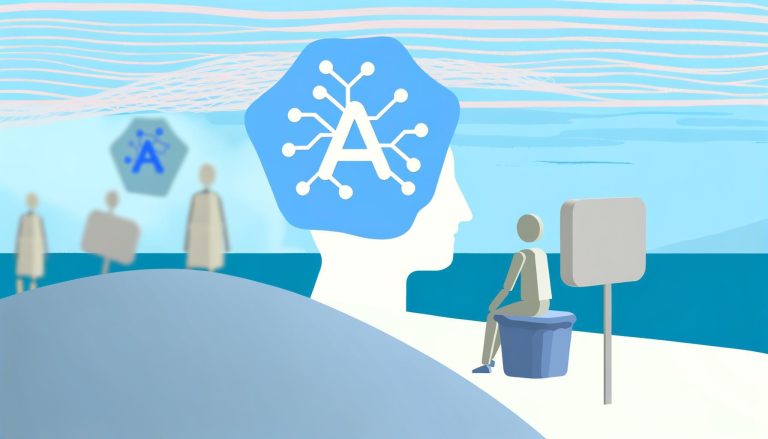In today’s fast-paced world, effective time management is a cornerstone for reducing stress and improving mental health. The advent of Artificial Intelligence (AI) has brought remarkable changes to the way we manage our time. AI assists in optimizing schedules, prioritizing tasks, and helping maintain a healthy work-life balance. This article explores how AI-assisted time management can lead to reduced stress and enhanced mental well-being.
Introduction to AI-Assisted Time Management
Time management has always been a significant challenge, especially in our technology-driven age where distractions are plentiful. As our responsibilities and commitments grow, it becomes harder to keep track of tasks, leading to stress and anxiety. This is where AI steps in, offering innovative solutions to streamline our schedules and prioritize our time effectively.
What is AI-Assisted Time Management?
AI-assisted time management refers to the use of artificial intelligence tools and applications designed to help individuals manage their time more efficiently. These tools use algorithms and data analysis to provide personalized recommendations, automate routine tasks, and support better decision-making processes. By leveraging AI, individuals can save time, reduce stress, and focus on what truly matters.
How AI Tools Work
AI tools analyze your behavior patterns, task completion times, and priorities to suggest and implement the most efficient ways to manage your time. They can also integrate with calendars, emails, and other productivity tools to offer seamless time management solutions. By predicting your needs and preferences, AI can help you stay organized and reduce the cognitive load associated with planning and scheduling.
The Benefits of AI-Assisted Time Management
Reduced Stress Levels
One of the primary benefits of AI-assisted time management is the reduction of stress levels. By automating routine tasks and providing intelligent recommendations, AI tools can free up mental space, allowing individuals to focus on more important aspects of their lives. This leads to a decrease in cognitive overload and improves mental clarity.
Improved Work-Life Balance
AI tools can help individuals set boundaries between work and personal life by optimizing their schedules. For instance, AI can suggest the best times for breaks, hobbies, and family activities, ensuring that individuals do not overwork and have ample time for personal rejuvenation. This balance is crucial for maintaining good mental health.
Enhanced Productivity
AI assists in prioritizing tasks based on their urgency and importance, ensuring that the most critical tasks are completed first. This prioritization not only enhances productivity but also reduces the likelihood of missing deadlines, which can be a major source of stress. Additionally, AI tools can identify patterns of procrastination and suggest ways to overcome them.
Personalized Recommendations
AI tools can analyze an individual’s habits and preferences to provide tailored recommendations for time management. This personalization ensures that the time management strategies are aligned with the individual’s unique needs, leading to better compliance and effectiveness. For example, if an individual is more productive in the morning, the AI tool might suggest scheduling high-priority tasks during that time.
Automated Task Management
AI tools can automate repetitive tasks such as email sorting, meeting scheduling, and report generation, saving individuals valuable time and effort. By taking over these mundane tasks, AI allows individuals to focus on more creative and strategic activities, reducing stress and enhancing job satisfaction.
Practical Tips for Using AI-Assisted Time Management
Identifying the Right AI Tools
It’s essential to identify the AI tools that best suit your needs. Some popular AI time management tools include:
- Trello: An AI-powered project management tool that helps you organize tasks and collaborate with teams.
- Todoist: An AI-enhanced to-do list app that helps you prioritize tasks and manage your schedule efficiently.
- Google Calendar: An AI-integrated calendar that suggests optimal times for meetings and events based on your schedule.
- RescueTime: An AI tool that tracks your time spent on different activities and provides insights to improve productivity.
Integrating AI Tools into Daily Routines
Once you have identified the right tools, it’s important to integrate them into your daily routines. Start by setting up your AI tools to sync with your calendars, emails, and other productivity apps. Make a habit of regularly updating your tasks and following the recommendations provided by the AI tools. Over time, this integration will become seamless and significantly enhance your time management.
Setting Realistic Goals
While AI tools can significantly improve time management, it’s crucial to set realistic goals and expectations. Break down large tasks into smaller, manageable chunks and use AI to schedule them appropriately. This approach not only makes the tasks more achievable but also reduces the feeling of overwhelm and stress.
Regularly Reviewing and Adjusting Schedules
AI-assisted time management is not a set-it-and-forget-it solution. It’s important to regularly review your schedules and adjust them based on your progress and changing priorities. Most AI tools provide analytics and insights that can help you understand your time usage and make necessary adjustments. By continuously refining your schedules, you can ensure that your time is being used in the most effective way possible.
Maintaining a Healthy Work-Life Balance
AI tools can suggest optimal times for breaks and leisure activities, but it’s up to you to follow through with these recommendations. Make a conscious effort to disconnect from work during non-working hours and engage in activities that promote relaxation and well-being. Maintaining this balance is key to reducing stress and improving overall mental health.
Learning and Adapting
AI tools learn from your behavior and preferences over time. Be open to experimenting with different settings and configurations to find what works best for you. As you and the AI tools adapt to each other, you will find more efficient ways to manage your time and reduce stress.
Conclusion
AI-assisted time management offers numerous benefits for reducing stress and improving mental health. By using AI tools to optimize schedules, prioritize tasks, and maintain a healthy work-life balance, individuals can experience enhanced productivity, reduced stress, and better mental well-being. Integrating AI tools into daily routines, setting realistic goals, and regularly reviewing schedules are practical steps to make the most of AI-assisted time management. Ultimately, adopting these tools can lead to a more organized, efficient, and fulfilling life.
If you’re looking to further improve your mental health and time management, consider using the Zenora App. With features like mood and habit tracking, goal setting, and personalized journal entries, Zenora can complement your AI-assisted time management efforts and help you thrive in life.





